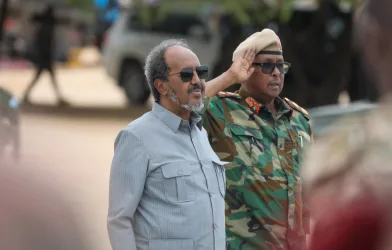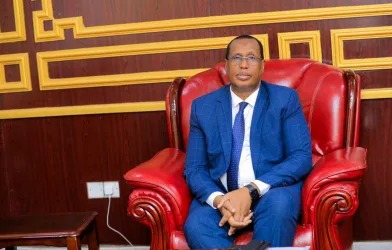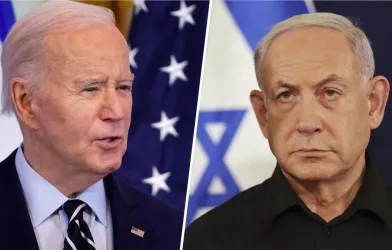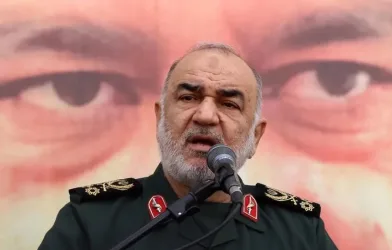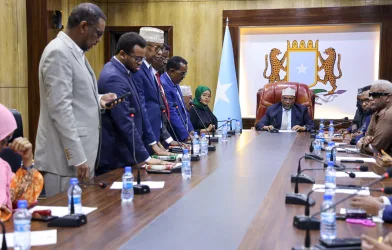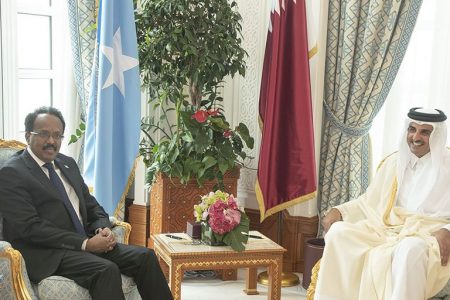
Nowadays, the scramble of gulf countries over Somalia is becoming dominant and can be seen in domestic politics of Somalia. In the wake of the Gulf rivalry in 2017 in which Saudi Arabia, the United Arab Emirates, Bahrain and Egypt unanimously decided to cut diplomatic and trade ties with Doha, as well as imposing a sea, land and air blockade on Qatar over accusation it supported “terrorism” among other charges, President Farmaajo tried to pursue a neutral course between the two camps despite pressure to side with the Saudi led camp. The UAE, alongside the other blockading countries, was skeptical of Somalia’s stance viewing as siding with the Qataris. This incident paved way for increased competition between the UAE and Qatar over having influence on Somalia’s domestic politics, a country already struggling with a fragile federal system in which constitutional responsibilities for foreign policy are fuzzy.
In his recent visit to Kenya, Somali president addressing on the Somali community in Kenya at the Somali Embassy in Kenya said:
“These days the Gulf states have joined the happenings in Somalia with its challenges. We are trying to keep them at bay so that at least the government can work and do something that people can touch in the short period it has got.”
President Farmaajo’s speech comes amid strong race between Qatar and the UAE for influence in Somali politics. Qatar has supported the central government’s domestic policy to form a strong central government, while UAE has strongly supported Somaliland and Puntland federal member states of Somalia which have been at loggerheads with Mogadishu.
Qatar has backed the federal government’s domestic policy of bringing power back to the Mogadishu. In addition, it plans to build a new harbor in the Hobyo city of Galmudug State, and to build a road that connects Mogadishu and the Jawhar towns. Qatar contributes to the public institution reforms and has pledged $385 million to help the federal government to develop infrastructures and provide social services.
On the other hand, UAE has strongly supported the federal member states of Somalia, particularly, Somaliland and Puntland. It has pledged to build the port of Berbera in Somaliland for $440 million, and another $336 million to build the port of Bosaso in Puntland. Somalia government rejected the agreement between the UAE, Ethiopia and Somaliland to over Berbera airport arguing that the deal violates the territorial integrity of Somalia. In addition, the UAE also provides military support to both Puntland and Somaliland. Having secured the two ports, the UAE has lunched actions to influence domestic politics in Somalia opposing the central government because of its strong ties with Qatar. Consequently, the relations between Somalia and UAE have become increasingly frosty. In April last year, Somali security officials at the airport seized 9.6 million US dollars sent from Abu Dhabi which the UAE claimed was intended for the Somali army. According to reports, the money was meant to ‘destabilize’ the country.
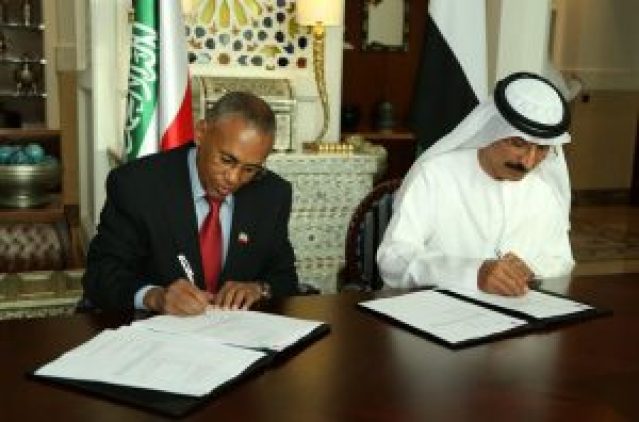
In conclusion, Somalia has become a battlefield between Qatar and UAE on domestic politics in Somalia, as well competing for contracts to control ports and exploit the country’s natural resources. In a nutshell, we can say that UAE and Qatar’s foreign policies are greatly affecting the domestic politics of Somalia. It is imperative that there is one foreign policy for Somalia to safeguard the country’s sovereignty. In a similar way, member states and the central government must work towards forming one foreign policy to maintain the country’s sovereignty.
Mohamed Ahmed Adan
Ankara, Turkey


